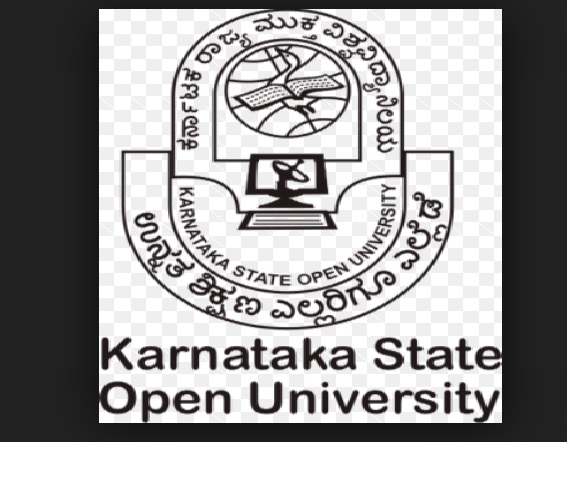Indian Constitution, Human Rights & Environmental Studies B.A Question Paper Model : ksoukarnataka.com
College : Karnataka State Open University
Degree : B.A
Department :History
Subject :Indian Constitution, Human Rights & Environmental Studies
Document type : Model Question Paper
Website : ksoukarnataka.com
Download Model/ Sample Question Papers :https://www.pdfquestion.in/uploads/ksoukarnataka.com/6485-ICHRES-122%20-%20INDIAN%20CONSTITUTION,%20HUMAN%20RIGHTS%20AND%20ENVIRONMENTAL%20STUDIES.docx
Karnataka Human Rights & Environmental Question Paper
TIME : 03 HOURS
MAX.MARKS : 90
Related : Karnataka State Open University Poetry,Prose,Fiction,Language Component B.A Question Paper Model : www.pdfquestion.in/6484.html
GROUP A : Answer any five questions.
Q.1 Explain the meaning and characteristics of the Constitution.
Q.2 Point out the importance of right to liberty.
Q.3 List out the difference between the fundamental rights and directive principles of state policy.
Q.4 Examine the power and functions of Rajya Sabha.
Q.5 State the main features of Federal Government in Indian Constitution.
Q.6 Analyse the powers and functions of a chief minister.
Q.7 Examine the powers of High Court of a state.
Q.8 Mention the fundamental duties of Indian citizens.

GROUP B : Answer any two questions.
Q.9 Explain the importance of Universal Declaration of Human Rights.
Q.10 Write a note on gender discrimination.
Q.11 What are the functions of Human Rights Commission?
GROUP C : Answer any two questions.
Q.12 Define Environmental studies and explain its importance.
Q.13 Discuss the different types of environmental pollution.
Q.14 Analyse the Abiotic factors in environmental interactions.
Syllabus
A-115: Indian History & Culture From The Earliest Times To 1526 A.D.
BLOCK 1: Indian from the earliest time to 6th Century B.C.
Unit 1: History: Definitions, Nature and Scope and Uses of History
Unit 2: Physical features and their influence on Indian History
Unit 3: Sources of Indian History
Unit 4: Harappan Culture
Unit 5: Vedic Age
BLOCK 2: Indian from the 6th Century B.C. to 4th Century B.C.
Unit 6: Jainism, Buddhism
Unit 7: Mahajanapadas and Magadhan Imperialism
Unit 8: Persian and Greek Invasions
Unit 9: Mauryan Age, Polity, Economy, Society and Culture
BLOCK 3: North India from the 3rd Century B.C. to 1206 A.D.
Unit 10: Indo-Greeks and Kushans
Unit 11: Age of the Guptas – Polity, Economy, Society & Culture
Unit 12: Vardhanas of Thaneswar
Unit 13: Rajputs – Polity, Economy, Society & Culture
Unit 14: Arab conquest of Sind
Unit 15: Turko–Afghan Invasions and their impact on Indian
BLOCK 4: Delhi Sultanate (1206 – 1526 A.D.)
Unit 16: The Slave Dynasty and the Khaljis
Unit 17: The Tughlaqs, Syeds and Lodis
Unit 18: Polity, Economy, Society and Culture
Unit 19: Bhakti and Sufi Movements
Unit 20: Vijayanager and Bahamanis
A-119: Economic Theory
BLOCK 1: Nature of Economics and Concepts
Unit 1: Problem of Economic Choice
Unit 2: Production Possibility Curves
Unit 3: Some basic Concepts
Unit 4: The Law of Diminishing Marginal Utility
Unit 5: Equilibrium of the Consumer in Utility Analysis
Unit 6: Theory of Consumer Surplus
Unit 7, 8: Indifference Curve Analysis
Theory of Demand and Supply
Unit 9: Theory of Demand
Unit 10: Elasticity of Demand
BLOCK 2: Theory of Consumer Behaviour
Unit 11: Theory of supply, elasticity and revenue curves
Unit 12: Production function
Unit 13: Cost curves
Unit 14: Perfect competition
Unit 15: Monopoly
Unit 16: Monopolistic competition
Unit 17: Oligopoly
BLOCK 3: Resources or Factor Pricing
Unit 18: Marginal productivity theory of distribution
Unit 19: Theories of Wages
Unit 20: Theories of Rent
Unit 21: Theories of Interest
Unit 22: Theories of Profit
BLOCK 4: Theory of Income and Employment
Unit 23: National Income
Unit 23A: Circular Flow of Income
Unit 24: Classical Theory of Employment
Unit 25: Keynes Theory of Employment
Unit 26: Consumption Function
Unit 27: Concepts of Multiplier and Accelerator
Unit 28: Investment Function
Unit 29: Business Cycles – Phases and Theory
A-117: Political Theory
BLOCK 1: Introduction
Unit 1: Meaning, Nature, Scope and Importance of Political Science
Unit 2: Methods in the study of Political Science
Unit 3: Relationship between Political Science, History and Economics
Unit 4: Relationship of Political Science with Sociology, Psychology and Ethics
Unit 5: State-Meaning and its Elements
Unit 6: Organic Theory
BLOCK 2: State and Its Origin
Unit 7: Origin of the State-Divine, Force, Patriarchal and Matriarchal Theories
Unit 8: Social Contract Theory and Historical Theory
Unit 9: Meaning and Characteristics
Unit 10: Theories of Sovereignty: Monistic and Pluralistic
Unit 11: Location of Sovereignty: Location of Sovereignty: Legal and Popular Sovereignty
BLOCK 3: Law, Rights and Duties
Unit 12: Meaning and Nature
Unit 13: Kinds of Law-Law and Liberty – Law and Morality
Unit 14: Meaning and Importance of Rights
Unit 15: Kinds-Theories of Rights
Unit 16: Duties-Meaning, Importance, Kinds and Safeguards
BLOCK 4: Functions of the State-Political Ideologies- I
Unit 17: Meaning, Nature and types of Democracy
Unit 18: Essentials of Democracy, Merits and De-merits
Unit 19 & 20: Socialism
Unit 21: Marxism or Communism
Unit 22: Democratic Socialism
Unit 23: Individualism
Unit 24: Anarchism
Unit 25: Facism
Unit 26: Nazism
Unit 27: The concept of welfare state, meaning and functions
Unit 28: Social Justice – Gandhi and Ambedkar
Critically discuss human rights relation to environment?
What do you mean by federal?
What is doctrine of pleasure?
This article deals with the appointment of p.m